Chow Chows are a unique and popular breed of dogs known for their blue-black tongues, lion-like appearance, and independent personalities. Can Chow Chows Live in Hot Weather? However, one question that often arises in the minds of potential owners is whether Chow Chows can live in hot weather. This article aims to provide a clear and knowledgeable answer to this question.
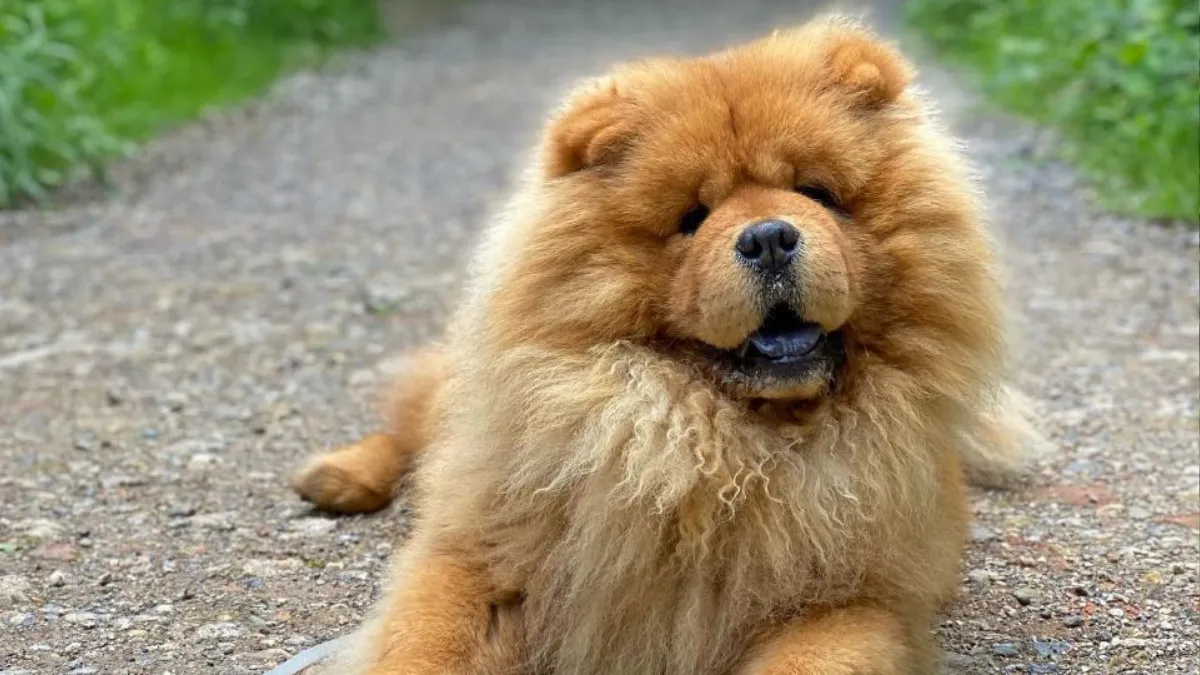
As a breed that originated in China, Chow Chows are naturally adapted to cooler temperatures. Their thick double coat was developed to protect them from the cold, and they are not well-suited to hot and humid climates. However, with proper care and attention, Chow Chows can live comfortably in warmer weather. This article will explore the factors that affect a Chow Chow's ability to tolerate heat and provide guidance on how to keep them healthy and happy in hot weather.
Temperature is a crucial factor to consider when it comes to a Chow Chow's well-being. These dogs are not able to regulate their body temperature as efficiently as other breeds, and they can quickly become overheated in hot weather. Owners must be aware of the signs of heatstroke and take steps to prevent it from occurring. This article will provide tips on how to keep a Chow Chow cool, such as providing shade, access to water, and avoiding strenuous exercise during the hottest parts of the day.
Understanding Chow Chows
Chow Chows are a unique breed of dogs that have a rich history and distinct physical and behavioral traits. Understanding these characteristics is essential for anyone considering owning a Chow Chow, especially in hot weather.
Breed History and Origin
Chow Chows originated in northern China and were primarily used for hunting, herding, and guarding. They were highly valued for their loyalty and bravery. Chow Chows were also considered a delicacy, and their meat was consumed in some parts of China.
Physical Characteristics
Chow Chows are a medium-sized breed with a distinctive blue-black tongue and a double coat. Their thick fur helps insulate them from cold weather but can also make them prone to overheating in hot weather. Chow Chows come in a variety of colors, including red, black, blue, cinnamon, and cream.

Behavioral Traits
Chow Chows are known for their independent nature and reserved demeanor. They require early socialization to prevent them from becoming aggressive or overly protective. Chow Chows can be stubborn and difficult to train, but they are also loyal and affectionate with their owners.
In conclusion, understanding the unique characteristics of Chow Chows is crucial for anyone considering owning this breed, especially in hot weather. Proper socialization and training can help ensure a happy and healthy relationship between Chow Chows and their owners.
Chow Chows in Hot Weather
Chow Chows are a breed of dog that originated in northern China, where the climate is cooler. As a result, they are not well-suited to hot weather. In this section, we will explore how Chow Chows cope with hot weather and what health issues they may face.
Heat Tolerance and Adaptations
Chow Chows have a thick double coat that helps to keep them warm in cold weather. However, this coat also makes it difficult for them to regulate their body temperature in hot weather. They do not sweat like humans do, and instead, they pant to release heat from their bodies. This is why it is important to keep them cool and hydrated in hot weather.
To help your Chow Chow cope with hot weather, you can take some simple steps. Ensure they have access to plenty of water and shade. You can also provide them with a cooling mat or a fan to help them stay cool. Avoid exercising them in the heat of the day and instead opt for early morning or late evening walks.
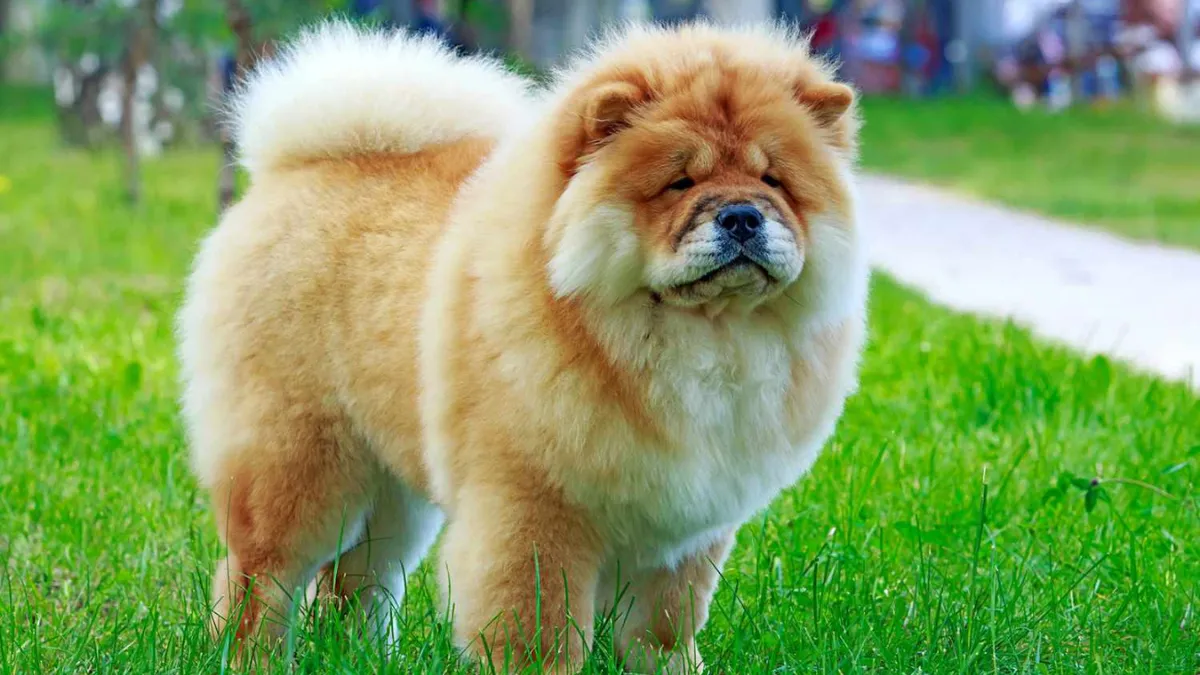
Common Heat-Related Health Issues
Chow Chows are at risk of several heat-related health issues, including dehydration, overheating, and heatstroke. Dehydration can occur when your dog loses more water than they take in, and it can be caused by hot weather, exercise, or illness. Signs of dehydration include dry gums, sunken eyes, and lethargy. To prevent dehydration, ensure your Chow Chow has access to plenty of fresh water.
Overheating can occur when your dog's body temperature rises above normal. Signs of overheating include excessive panting, drooling, and lethargy. To prevent overheating, ensure your Chow Chow has access to shade and cool water. You can also use a cooling mat or a fan to help them stay cool.
Heatstroke is a severe form of overheating that can be life-threatening. Signs of heatstroke include collapse, seizures, and vomiting. If you suspect your Chow Chow has heatstroke, you should seek veterinary attention immediately. To prevent heatstroke, ensure your Chow Chow has access to shade and cool water, and avoid exercising them in the heat of the day.
In conclusion, Chow Chows are not well-suited to hot weather, but with some simple precautions, you can help them stay cool and healthy. Keep them hydrated, provide them with shade and cool water, and avoid exercising them in the heat of the day. If you notice any signs of heat-related health issues, seek veterinary attention immediately.
Caring for Chow Chows in Heat
Chow Chows are known for their thick double coats, which makes them well-suited for colder climates. However, in hot weather, their thick coats can make them uncomfortable and even lead to health issues. Here are some tips for caring for your Chow Chow in hot weather.
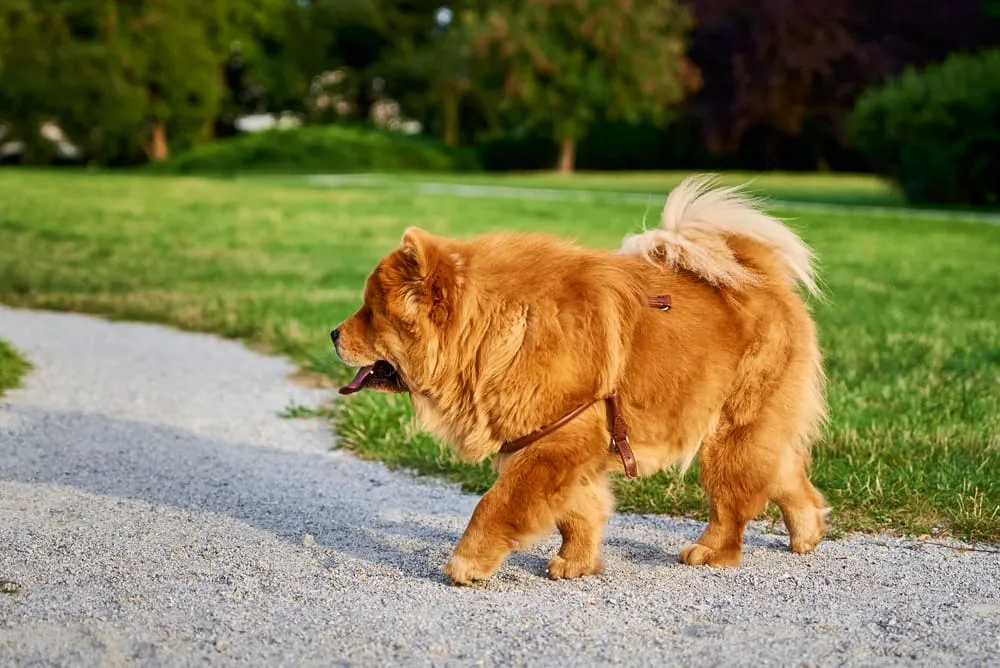
Proper Hydration and Nutrition
One of the most important things to keep in mind when caring for your Chow Chow in hot weather is proper hydration. Make sure your dog has access to cool water at all times, and consider adding ice cubes to their water bowl to keep it cool. Additionally, make sure your Chow Chow is getting proper nutrition, as a balanced diet can help regulate their body temperature.
Exercise and Activity Management
In hot weather, it's important to manage your Chow Chow's exercise and activity levels to prevent lethargy and heat exhaustion. Avoid exercising your dog during the hottest parts of the day, and opt for shorter walks or playtime sessions. If your Chow Chow seems lethargic or overheated, take a break and let them rest in a cool, shaded area.
Shade and Shelter
Providing your Chow Chow with shade and shelter is crucial in hot weather. Make sure your dog has access to a shaded area, such as a covered porch or tree, and consider setting up a cooling mat or fan to help regulate their body temperature. If your Chow Chow spends time outdoors, make sure they have access to a well-ventilated shelter to protect them from the sun.
Grooming and Coat Care
Regular grooming and coat care can also help keep your Chow Chow comfortable in hot weather. Brush your dog's coat regularly to remove loose fur and prevent matting, which can trap heat. Consider trimming your Chow Chow's fur, but be careful not to shave them completely, as their double coat provides insulation in both hot and cold weather.
By following these tips, you can help keep your Chow Chow healthy and comfortable in hot weather. Remember to monitor your dog closely for signs of overheating, and seek veterinary care if necessary.

Health and Well-being
Chow Chows are known to have a thick, double coat of fur that can make them susceptible to heatstroke and other heat-related illnesses. Therefore, it is crucial to ensure that they are healthy and well-cared for in hot weather.
Recognizing Heatstroke Symptoms
One of the most common heat-related illnesses is heatstroke, which can be life-threatening if not treated promptly. Chow Chows are prone to heatstroke due to their thick fur coat and short snouts. Symptoms of heatstroke in dogs include excessive panting, lethargy, vomiting, diarrhea, and seizures. If a Chow Chow shows any of these symptoms, it is essential to seek veterinary care immediately.
Preventing Obesity and Related Issues
Maintaining a healthy weight is crucial for the well-being of Chow Chows. Obesity can lead to various health problems, including hip dysplasia, arthritis, and heart disease. Therefore, it is essential to monitor their weight and ensure they are getting enough exercise. Chow Chows should have a balanced diet that is low in fat and calories to prevent obesity and related issues.
Veterinary Care and Monitoring
Regular veterinary care and monitoring are essential for the health and well-being of Chow Chows. It is recommended to take them for a check-up at least once a year, and more frequently if they have any health issues. A veterinarian can monitor their health status and guide how to maintain their well-being in hot weather. Additionally, it is recommended to use a rectal thermometer to check their body temperature during hot weather to prevent heatstroke.
In conclusion, maintaining the health and well-being of Chow Chows in hot weather requires proper care and attention. Recognizing heatstroke symptoms, preventing obesity and related issues, and regular veterinary care and monitoring are crucial for ensuring their well-being. By following these guidelines, Chow Chows can live comfortably in hot weather without compromising their health.
Environmental Adjustments
When it comes to living in hot weather, Chow Chows may need some environmental adjustments to ensure their comfort and safety. Here are some considerations for adjusting your Chow Chow's environment:
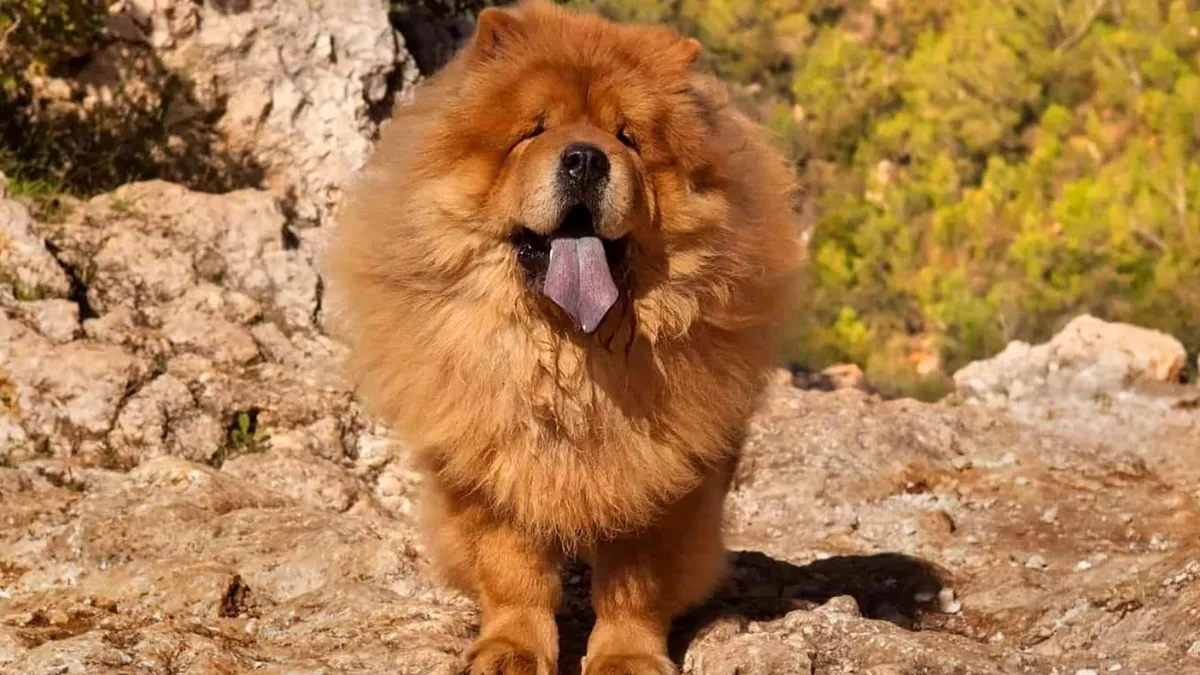
Indoor Cooling Methods
Air conditioning is the most effective way to keep your Chow Chow cool indoors. A temperature between 65-75°F is recommended for their comfort. If air conditioning is not an option, fans can be used to circulate the air and provide some relief. Cooling mats can also be used to provide a comfortable place for your Chow Chow to lay down.
Outdoor Living Considerations
If your Chow Chow lives outside, it is important to provide a shaded area with good ventilation. Avoid leaving your Chow Chow outside for extended periods during the hottest parts of the day. It is also important to provide access to clean water at all times and to monitor their water intake to prevent dehydration.
Humidity and moisture can also be a concern for Chow Chows in hot weather. High humidity can make it difficult for them to regulate their body temperature and can lead to heat exhaustion or heat stroke. Moisture can also lead to skin irritation and infections. Regular grooming and keeping your Chow Chow's coat clean and dry can help prevent these issues.
Overall, with some environmental adjustments and proper care, Chow Chows can live comfortably in hot weather.
Seasonal Concerns and Care
Transitioning Between Seasons
Chow Chows are adaptable dogs that can adjust to different weather conditions, but they may need some time to acclimate to a significant change in temperature. When transitioning from a cold to a hot season, or vice versa, it is important to gradually expose your Chow Chow to the new conditions. This means gradually increasing or decreasing the amount of time they spend outside and monitoring their behavior and reactions.
During the transition period, it is important to keep your Chow Chow well-hydrated, as dehydration can increase their susceptibility to heatstroke. Providing access to shade and fresh water is crucial to keeping your Chow Chow comfortable during the transition.
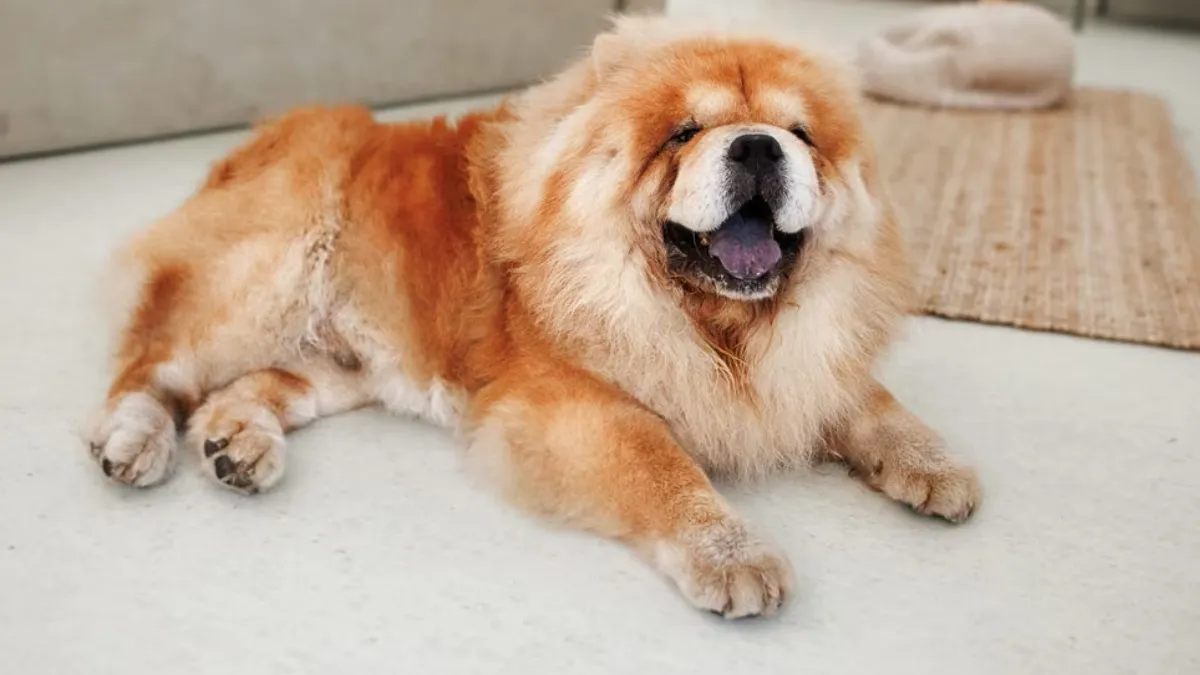
Cold Weather Vulnerabilities
While Chow Chows are known for their thick, double coats that provide insulation in cold weather, it is important to monitor them for signs of hypothermia. Chow Chows can be vulnerable to hypothermia if they are exposed to cold weather for extended periods without proper shelter or protection.
To prevent hypothermia, it is important to provide your Chow Chow with a warm, dry place to rest and sleep, as well as protective clothing if necessary. It is also important to monitor their behavior and reactions to cold weather and to bring them inside if they show signs of discomfort or distress.
Overall, with proper care and attention, Chow Chows can live comfortably in a wide range of weather conditions. By monitoring their behavior and reactions, providing access to shade and shelter, and keeping them well-hydrated, you can help ensure your Chow Chow stays healthy and happy year-round.
Training and Companionship
When it comes to owning a Chow Chow in hot weather, training and companionship are crucial factors to consider. Effective training techniques and building a strong bond with your furry friend can help ensure their happiness and well-being.
Effective Training Techniques
Chow Chows are known for their stubbornness, which can make training a challenge. However, with patience and consistency, they can be trained successfully. Positive reinforcement techniques, such as using treats and praise, can be highly effective.
It's important to start training your Chow Chow early on in their life to establish good habits and prevent any negative behaviors from developing. Regular exercise and activity can also help to keep your dog mentally stimulated and prevent boredom, which can lead to destructive behaviors.
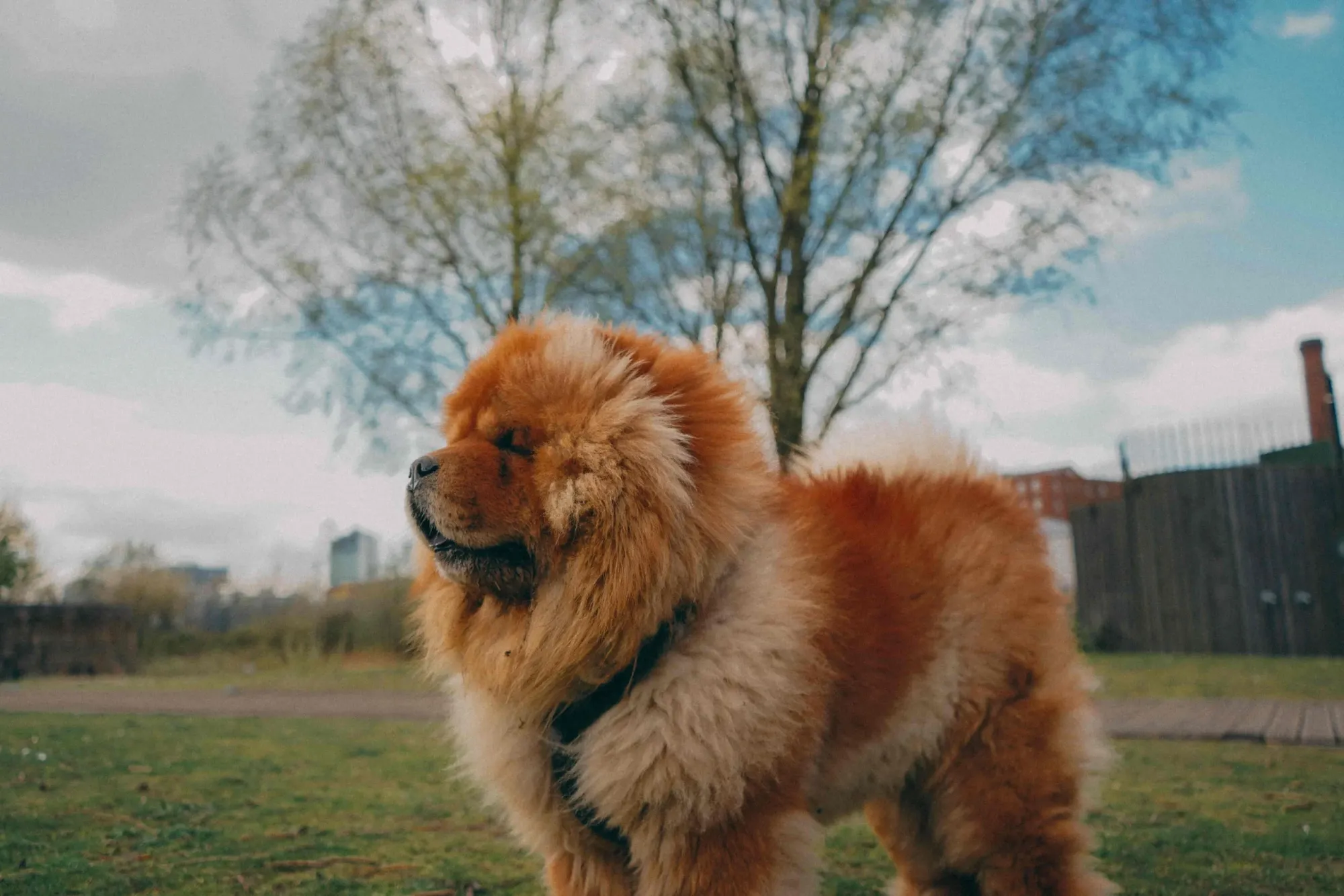
Building a Strong Bond
Chow Chows are very loyal dogs and thrive on companionship. Spending time with your dog, playing, and going on walks can help to build a strong bond between you and your furry friend. This bond can help to prevent separation anxiety and ensure your dog's happiness.
Feeding your Chow Chow a healthy and balanced diet can also contribute to their overall well-being and happiness. It's important to provide your dog with plenty of fresh water, especially in hot weather, to prevent dehydration.
In summary, effective training techniques and building a strong bond with your Chow Chow are essential for their happiness and well-being in hot weather. Regular exercise, positive reinforcement, and a healthy diet can all contribute to a happy and healthy furry friend.
Advanced Health Considerations
Chronic Conditions and Diseases
Chow Chows may be prone to certain chronic conditions and diseases, which may be exacerbated by hot weather. For instance, diabetes and hypothyroidism can affect a dog's ability to regulate its body temperature, and heart disease can cause difficulty in breathing. It is important to monitor your Chow Chow's health and seek veterinary attention if you notice any symptoms such as excessive panting, lethargy, or loss of appetite.
Emergency Interventions
In case of an emergency, it is important to know how to provide immediate care to your Chow Chow. Intravenous fluids and oxygen therapy may be necessary to stabilize the dog's condition. It is recommended to have a first aid kit on hand and to know how to administer basic first aid in case of an emergency.
Overall, while Chow Chows can live in hot weather, it is important to be aware of the potential health risks and issues that may arise. Regular veterinary care and monitoring of your dog's health can help prevent or address any problems that may arise.
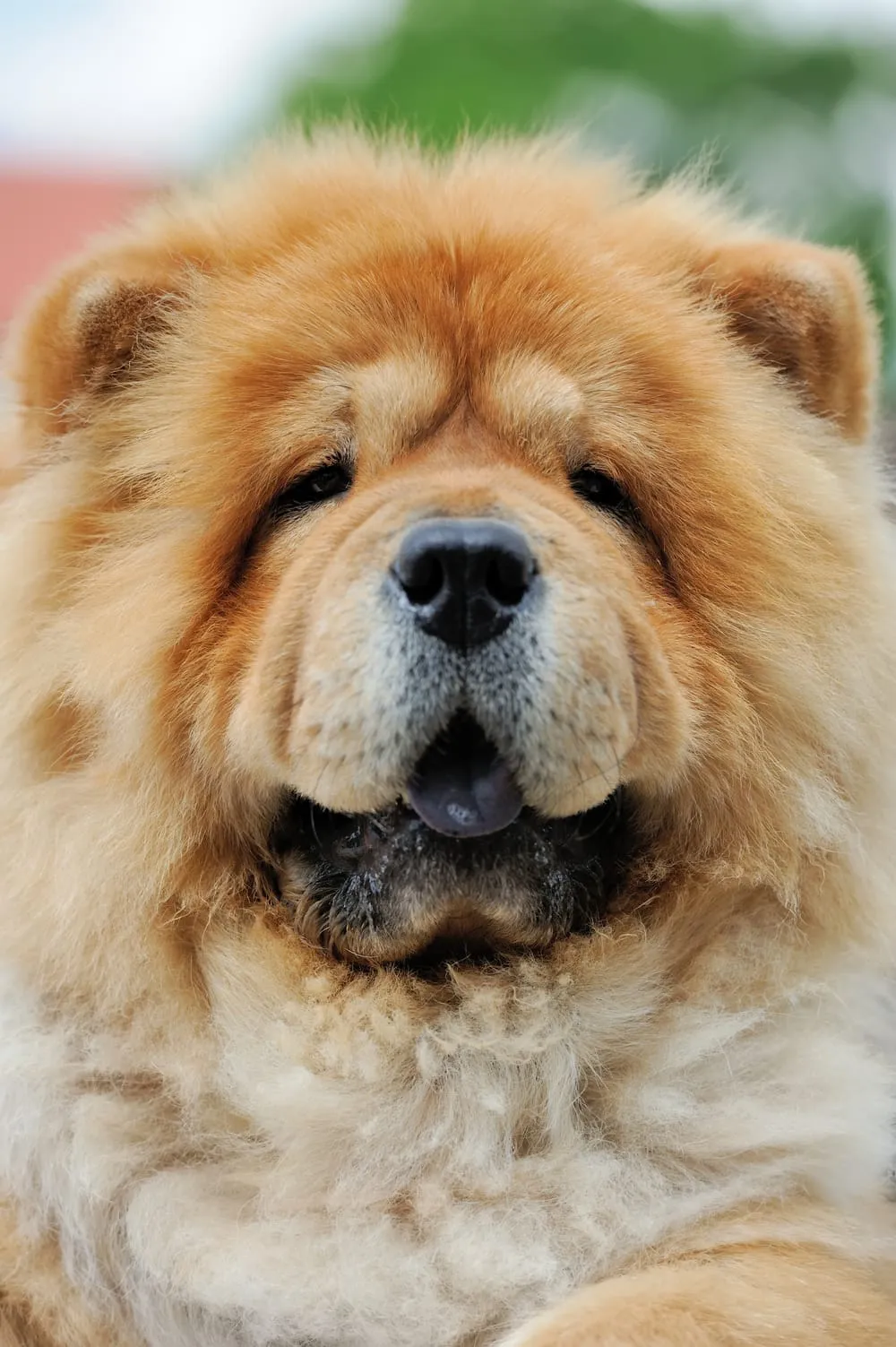
Conclusion
In conclusion, the question "Can Chow Chows live in Hot Weather?" prompts consideration of various factors influencing their well-being in warmer climates. Chow Chows, with their thick double coats, are naturally adapted to colder temperatures and may struggle to regulate their body heat in hot weather. While they can tolerate moderate heat with proper precautions, such as access to shade, freshwater, and cooling options like air conditioning or fans, prolonged exposure to high temperatures can pose risks to their health.
Owners living in hot climates should take proactive measures to ensure their Chow Chows remain comfortable and safe. This includes scheduling outdoor activities during cooler times of the day, avoiding strenuous exercise in extreme heat, and monitoring for signs of heat stress or exhaustion.
Furthermore, regular grooming to remove loose fur and prevent matting can aid in temperature regulation for Chow Chows. Additionally, providing indoor environments with adequate ventilation and cooling aids can help mitigate the challenges of hot weather.
Ultimately, while Chow Chows can adapt to living in hot climates with proper care and attention to their unique needs, owners need to prioritize their well-being and take necessary precautions to ensure they thrive in any environment.




